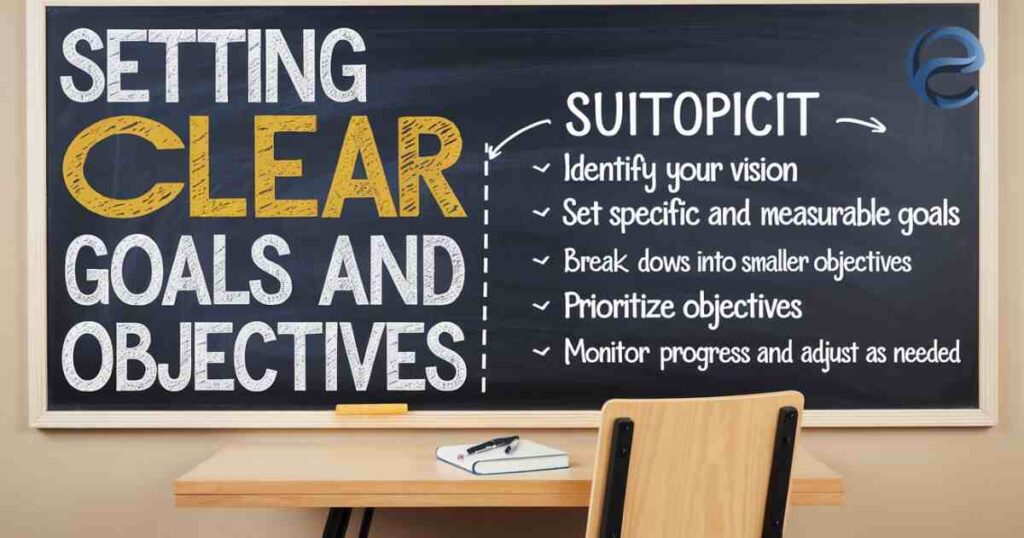Life is an adventure, and you’re the main character. Planning your personal lifestyle journey means taking charge of your story. It’s about figuring out what you want from life and making a plan to get there. This journey isn’t just about big goals like your career or relationships. It’s also about the small things that make each day better and more meaningful.
When you plan your lifestyle journey, you create a roadmap for your future. You’ll set goals that excite you and match your values. You’ll learn new skills, build great relationships, and discover what truly makes you happy. This journey is all about growing as a person and enjoying the ride along the way. With a good plan, you can turn your dreams into reality and live a life that feels rich and fulfilling.
Why is personal growth important?
Personal growth helps you become a better version of yourself. It’s like exercising your mind and spirit. When you grow, you learn new things and get better at handling life’s challenges. This makes you feel more confident and happy.
Growing as a person also helps you in your job and relationships. You become more skilled and understand people better. This can lead to more success and stronger connections with others. Personal growth keeps life exciting and helps you reach your full potential.
What are the benefits of a personal development plan?

A personal development plan is like a roadmap for your life. It helps you figure out where you want to go and how to get there. With a plan, you’re more likely to achieve your goals because you have clear steps to follow. It keeps you focused and motivated.
Having a plan also boosts your confidence. You can see your progress and celebrate small wins along the way. This makes you feel good about yourself and encourages you to keep going. A personal development plan helps you make the most of your time and energy.
Self-Assessment and Reflection
Self-assessment means taking a good look at yourself. It’s like checking a map to see where you are in life. You think about your strengths, weaknesses, and what you want to improve. This helps you understand yourself better and make smarter choices.
Reflection is about thinking deeply about your experiences. It’s like being your own teacher. You look at what you’ve done, what you’ve learned, and how you can do better next time. Regular reflection helps you grow and avoid repeating mistakes.
Identify core values and Beliefs
Your core values are the things that matter most to you. They guide your decisions and actions. To find your values, think about what makes you feel happy, proud, or fulfilled. These could be things like honesty, kindness, or hard work.
Your beliefs are the ideas you hold about yourself and the world. They shape how you see things and act. It’s good to examine your beliefs now and then. Some might help you, while others might hold you back. Knowing your beliefs helps you understand why you do what you do.
Evaluate Current Life Satisfaction
To evaluate your life satisfaction, you need to check in with yourself. Ask how happy you are in different areas of your life. These include your job, relationships, health, and hobbies. Be honest with yourself about what’s going well and what needs work.
Rating your satisfaction helps you see where to focus your efforts. You might find some areas of your life are great while others need attention. This is normal and okay. Knowing where you stand helps you make plans to improve the parts of your life that matter most to you.
Recognizing strengths and areas for improvement
Everyone has things they’re good at and things they can work on. Take some time to think about what you do well. These are your strengths. Also, think about where you struggle or want to get better. These are your areas for improvement. Knowing both helps you grow and make smart choices about your future.
Setting Clear Goals and Objectives

Goals give your life direction. They’re like destinations on a map. When you set clear goals, you know what you’re working towards. This makes it easier to stay motivated and track your progress. Good goals are specific and meaningful to you. They help you focus your energy on what’s important.
Utilize the SMART goal-setting framework
SMART is a tool to help you set better goals. It stands for Specific, Measurable, Achievable, Relevant, and Time-bound. Using SMART makes your goals clearer and more likely to happen. For example, instead of “get fit,” a SMART goal might be “jog for 30 minutes three times a week for the next month.”
Balance short-term and long-term goals
It’s good to have both quick wins and big dreams. Short-term goals are things you can do soon, like this week or month. They keep you motivated. Long-term goals are bigger and take more time, like saving for a house. Having both types of goals helps you make progress now while working towards your future.
Align goals with personal values
Your goals should match what’s important to you. These important things are your values. When your goals fit your values, you feel more excited to work on them. For example, if you value family, your goals include spending more time with loved ones. This alignment makes your journey more meaningful and satisfying.
Prioritizing goals across different life domains
Life has many areas, like work, family, health, and hobbies. It’s important to set goals in each area. But you can’t focus on everything at once. Pick the most important goals in each area. This helps you balance your life. You might focus more on work goals one month, then switch to health goals the next. This way, you grow in all areas over time.
Create a Personal Development Plan
A personal development plan is your roadmap for growth. It outlines what you want to achieve and how you’ll do it. This plan helps you stay on track and make progress. It includes your goals, action steps, and deadlines. Write your plan down and review it often. This keeps you focused and motivated on your journey to become a better you.
Structure your plan
- Start with your big-picture goals
- Break big goals into smaller, manageable steps
- Set clear deadlines for each step
- List actions you’ll take to reach each goal
- Include ways to measure your progress
- Leave room for flexibility and adjustments
Identify necessary resources and support
- List skills or knowledge you need to learn
- Find books, courses, or mentors to help you grow
- Identify people who can support your journey
- Look for tools or apps that can assist you
- Consider joining groups or communities with similar goals
- Think about any financial resources you might need
Incorporate flexibility for adaptability
Life can surprise us. Things change, and we need to change too. Be open to new ideas and ways of doing things. Don’t stick too hard to your plans. Adjust them when needed. Learn from mistakes and setbacks. Try new approaches when old ones don’t work. Stay curious and willing to learn. This flexibility will help you handle life’s ups and downs better.
Nurture Physical and Mental Well-being
Take care of your body and mind. They work together to keep you healthy. Eat good food and move your body regularly. Get enough sleep. Find ways to relax and have fun. Talk to friends or a therapist when you feel down. Make time for hobbies you enjoy. Remember, a healthy body supports a healthy mind, and vice versa.
Develop healthy lifestyle habits

Good habits make life better. Start small and build up. Drink more water each day. Go to bed at a regular time. Take short walks. Eat more fruits and vegetables. Limit junk food and sugary drinks. Spend less time on screens. Read for a few minutes before bed. These small changes add up to big improvements in your life.
Incorporate regular exercise and nutrition
Move your body every day. Find activities you enjoy. It could be dancing, swimming, or playing a sport. Aim for 30 minutes of exercise most days. Eat a variety of foods. Include lots of colorful fruits and vegetables. Choose whole grains over processed ones. Drink water instead of sodas. Plan your meals to avoid unhealthy snacking. Your body will thank you for these good choices.
Prioritizing mental health and stress management
Your mental health matters. Learn to recognize signs of stress. Take breaks when you feel overwhelmed. Practice deep breathing or meditation. Talk about your feelings with trusted friends. Set boundaries to protect your time and energy. Do things you enjoy every day. If you’re struggling, don’t hesitate to seek professional help. Your mental health is just as important as your physical health.
Fostering Meaningful Relationships
Relationships are the heart of a happy life. Build strong connections with family and friends. Listen actively when others speak. Show kindness and empathy. Be there for others in tough times. Share your feelings honestly. Make time for fun and laughter together. Resolve conflicts calmly. Remember to nurture your relationships regularly, just like you would tend a garden.
FAQs
How do I start my personal development journey?
Begin with self-reflection. Identify your strengths and areas for improvement. Set clear, achievable goals. Create a plan with small, actionable steps.
What’s the most important part of a personal success plan?
Setting specific, measurable goals is crucial. Break these goals into smaller tasks. Take consistent action and adjust your plan as needed.
How can I stay motivated during my growth journey?
Celebrate small wins along the way. Remind yourself of your ‘why’. Seek support from friends or a mentor. Regularly review and update your goals.
How do I balance different areas of personal development?
Focus on one or two areas at a time. Set goals in various life domains like career, health, and relationships. Adjust your focus as needed.
How often should I review my personal development plan?
Review your plan monthly for short-term goals. For long-term goals, do a thorough review every 3-6 months. Make adjustments based on your progress and changing circumstances.
Conclusion
Your lifestyle journey is a unique adventure. It’s about discovering who you are and who you want to become. Remember, there’s no perfect path. What matters is that you keep moving forward.
Embrace the process of learning and growing. Celebrate your wins, big and small. When you face setbacks, see them as chances to learn. Stay flexible and open to new ideas. Your journey is yours alone, so make it meaningful and enjoyable.
The key to a successful journey is balance. Take care of your body, mind, and relationships. Set goals that excite you, but don’t forget to enjoy the present. Be kind to yourself along the way. Seek support when you need it.
Keep learning and trying new things. Your lifestyle journey is a lifelong adventure. With patience, persistence, and a positive attitude, you can create a life that truly fulfills you. So take that first step today and embrace the exciting journey ahead.

Kiara Arushi is the dedicated admin of this personal website, which serves as a comprehensive hub for general information across various topics. With a keen eye for detail and a passion for knowledge sharing, Kiara curates content that is both informative and engaging, catering to a diverse audience.
Her commitment to providing accurate and up-to-date information ensures that visitors find valuable insights and practical tips in every post. Whether you’re seeking the latest trends or timeless advice, Kiara’s expertise makes this site a trusted resource for all.


